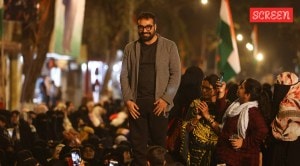In 2004, a response to Gujarat
In the Lok Sabha election of 1999, the NDA’s manifesto promised to take ‘‘effective steps to create a riot-free order.’&...

In the Lok Sabha election of 1999, the NDA’s manifesto promised to take ‘‘effective steps to create a riot-free order.’’ It also boasted that the previous year, 1998, saw ‘‘the lowest incidence of communal violence in the last 10 years.’’ So, post-Gujarat, what will the NDA say in this regard in its manifesto for the forthcoming election? Will it gloss over the issue even though the Gujarat riots, by all accounts, marked the lowest point of Vajpayee’s tenure? No amount of spin doctoring can hide the fact that 2002, the year in which Gujarat burned for weeks under Narendra Modi’s rule, saw the highest incidence of communal violence in the last 20 years. That is, since the 1984 massacre of Sikhs in Delhi under Rajiv Gandhi’s rule.
What is equally glaring is the NDA’s failure to undertake any systemic reform or ‘‘effective steps,’’ as promised by it in 1999, ‘‘to create a riot-free order.’’ The electorate should not allow this promise to go off the political radar in 2004. Since all mainstream parties anyway swear by secularism, this election is an opportune moment to force them to evolve a consensus on finding a remedy to the problem of communal violence. They have got away with this omission till now probably because the frequency of communal violence is, thankfully, not too high. But when it takes place, it has on more than one occasion claimed a death toll running into four figures. That is far more than the scale of destruction wrought by any single instance of terrorism or caste atrocities, the two recurring problems for which India has for years had special draconian laws.
The principle of adopting more stringent provisions to take on the scourge of terrorism or caste atrocities should apply to communal violence as well. But if no such law has been passed so far, despite the NDA’s commitment five years ago ‘‘to create a riot-free order,’’ it is because the political class as such has a vested interest in maintaining the status quo. India’s history since Independence is littered with instances of some party or the other engineering communal violence to derive electoral mileage. It is a weapon of mass destruction (WMD) political parties have in their arsenal. Each would like to retain the option of unleashing this WMD whenever it is politically expedient. This cosy arrangement between all parties would fall apart and the WMD would be dismantled once Parliament passes a Pota-like law empowering the system to come down on communal violence with a heavy hand.
Look at the possible provisions of such a special enactment against communal violence:
• Borrowing from Pota, it can very well make a presumption of guilt against civil and police officers who failed to check communal violence. A statutory presumption of that kind will help officers resist political pressures. They will be able to say, ‘‘We can’t allow the violence, sir. You can’t help us when we are presumed in the court to be guilty of complicity.’’
If some officer still looks the other way when the riots are on, then the special law will require the prosecution to try him under it along with the miscreants. As a corollary, if the prosecution fails to perform this statutory duty, any citizen, whether he is himself a victim or not, will have the right to complain against the officer in the local court.
• Communal violence should be put in the category of ‘‘federal crimes,’’ a concept sought to be introduced by L.K. Advani so that serious offences such as terrorism are handled at the national level rather than being left to respective states. Modelled after the FBI in the US, Advani’s proposal is that all federal crimes should be handled by a Federal Law Enforcement Agency (FLEA), conceived as a more effective replacement of the CBI.
The recent disclosures from Gujarat in the gang rape-cum-mass-murder case of Bilkis Yakub Rasool underline the need to entrust all communal violence cases to a Central or federal agency. It is the only Gujarat riot case to have been handled by the CBI and its findings have been so dramatically different. The CBI even arrested the policemen who had closed the Bilkis case. This one case happened to go to the CBI because of the Supreme Court’s intervention. The proposed law should make it mandatory for all communal violence cases to be handled by the outside agency.
• Another draconian provision that can be profitably adopted from Pota is the ban on bail for at least a year. Think of the deterrent effect it will have if the special law provides that none of the rioters or policemen booked under it will get bail.
The challenge before the 2004 election is to throw up a creative response to Gujarat. All of us have a stake in forcing the system to make what will be the first serious attempt ‘‘to create a riot-free order.’’
Photos


- 01
- 02
- 03
- 04
- 05





























